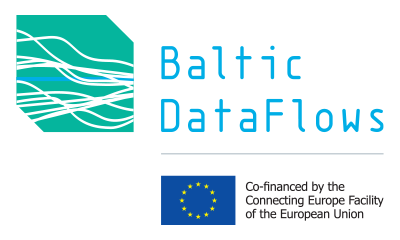In a bid to harmonize, harvest and share data about the Baltic marine environment at a regional level, HELCOM launched the Baltic Data Flows project in October 2020.
“With Baltic Data Flows, we will be able to put together the different pieces of the Baltic data puzzle,” said Joni Kaitaranta, HELCOM’s data coordinator who oversees the project.
“There’s already a lot of data on the Baltic scattered out there and there is a long tradition of reporting this data to HELCOM by the Contracting Parties according to data formats developed over time,” observed Kaitaranta.
“By combining the data into a regional data product, we will get a pan-Baltic and holistic perspective, which will not only be useful for research and environmental assessments, but also for maritime spatial planning and blue growth-oriented development,” he said.
Baltic Data Flows will enhance the existing harmonization and sharing of data on the marine environment originating from existing sea monitoring programmes. Extending a previous pilot system by project partners ICES and SMHI, it will do so by harvesting national data on the marine environment in order to produce harmonized, regional datasets in a more automated and efficient way.
The project will also seek to enhance the capacity and ICT infrastructure of the competent national authorities for harmonising and sharing collected environmental monitoring data on the Baltic Sea by supporting development of database platforms.
Baltic Data Flows also seeks to increase capacities on quality control and publication of open data within the national organisations and providers hosting environmental data, notably by promoting the implementation of the FAIR principles stating that data should be Findable, Accessible, Interoperable and Reusable.
To support wider dissemination of data collected within the Baltic, the harmonised datasets will eventually be harvested to and made accessible via the European Data Portal (EDP) by using DCAT-AP compliant metadata catalogues.
Co-financed by the Connecting Europe Facility of the European Union’s Innovation And Networks Executive Agency(INEA) and led by HELCOM, the project will run for three years through September 2023. Further partners are ICES, LHEI, SMHI, Spatineo, Stockholm University, and SYKE.
